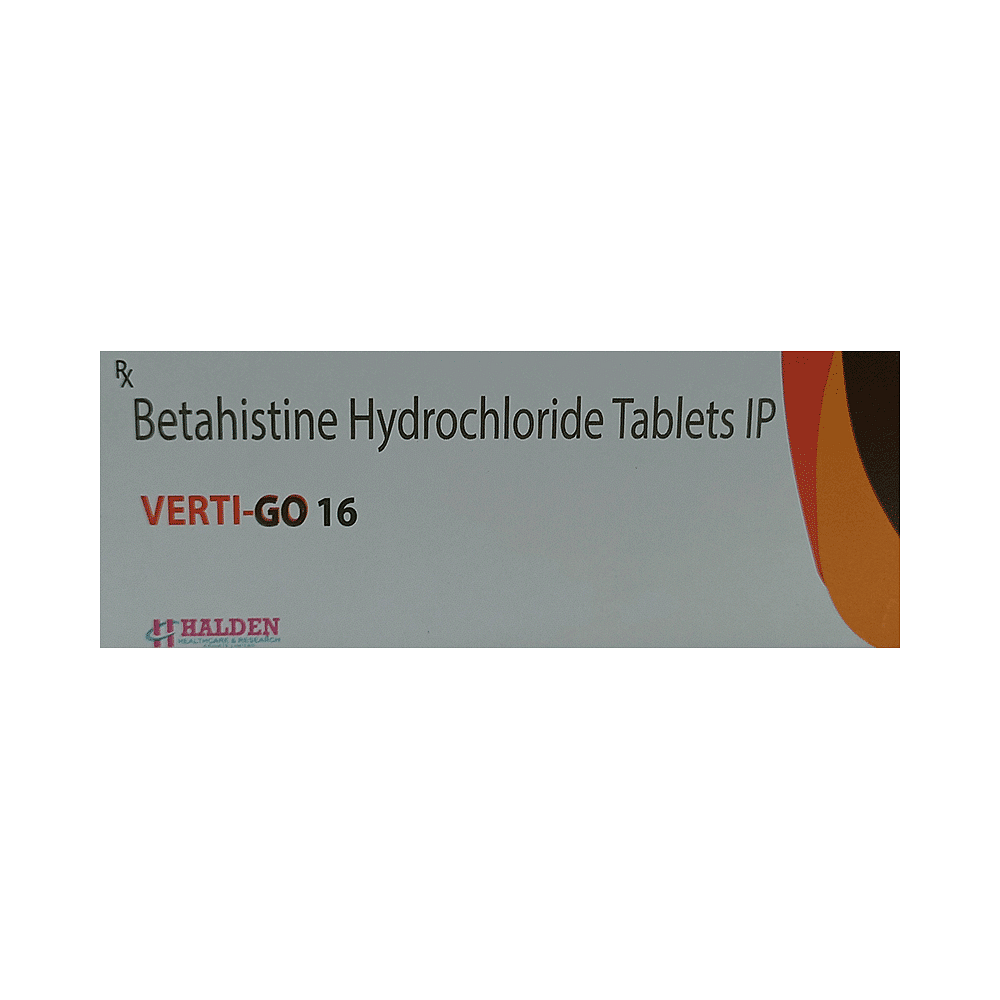
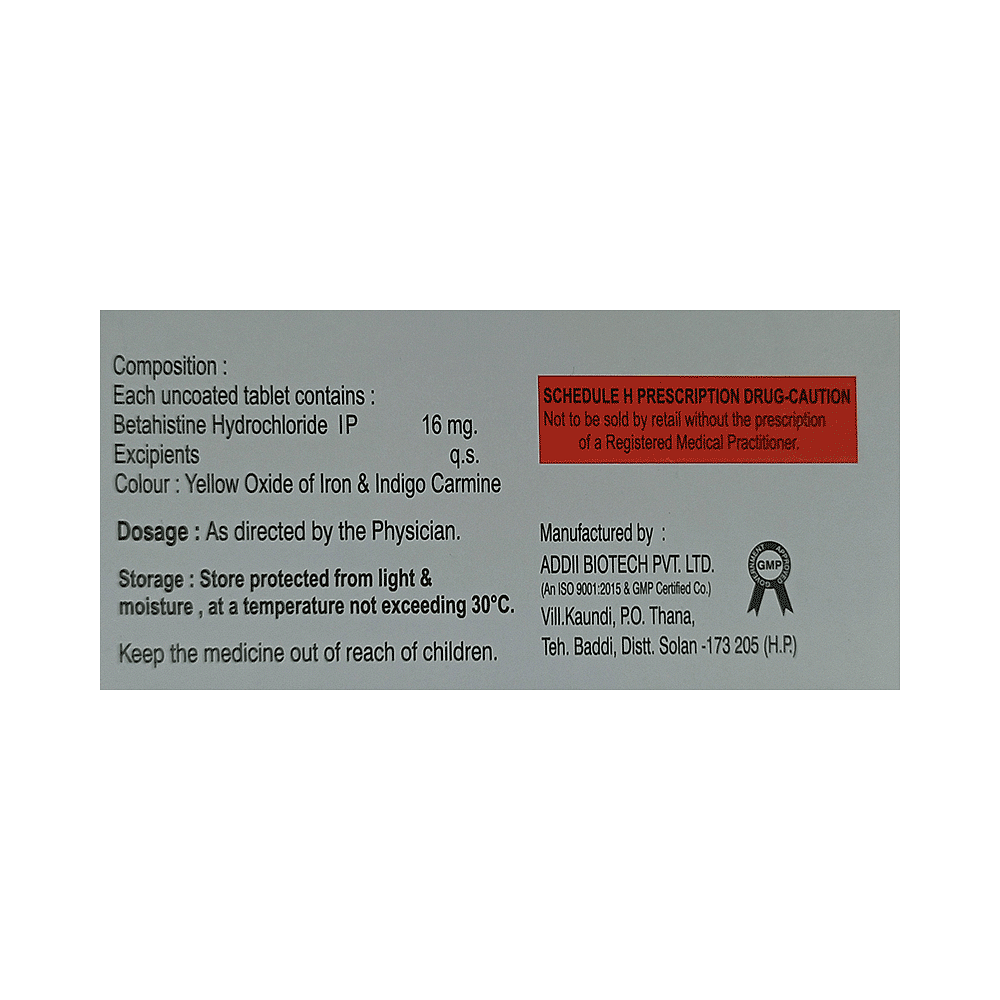
Verti-GO 16 Tablet
Manufacturer
Halden Healthcare & Research Pvt Ltd
Salt Composition
Betahistine (16mg)
Key Information
Short Description
Verti-GO 16 Tablet is used to prevent and treat a disorder of the inner ear known as Ménière’s disease.
Dosage Form
Tablet
Introduction
Verti-GO 16 Tablet should be swallowed whole with water and taken at the same time(s) each day to get the most benefit. Your doctor will decide what is the correct dose to relieve your symptoms and how often you need to take it. You may need to take this medicine for several months and you should take it for as long as prescribed by your doctor even if you start feeling better.
Directions for Use
Take this medicine in the dose and duration as advised by your doctor. Swallow it as a whole. Do not chew, crush or break it. Verti-GO 16 Tablet may be taken with or without food but it is better to take it at a fixed time.
How it works
Verti-GO 16 Tablet is a histamine analog. It works by improving the blood flow in the inner ear which reduces the pressure of excess fluid there. Excess fluid can send signals to the brain causing nausea, dizziness or spinning sensations (symptoms of Ménière's disease). Verti-GO 16 Tablet additionally dampens down the nerve signals sent from the inner ear to the brain relieving the symptoms of Ménière's disease.
Quick Tips
You have been prescribed Verti-GO 16 Tablet to relieve vertigo (dizziness) Healing problems and tinnitus (noise in the ear) associated with Ménière's disease. It can only decrease the number and severity of attacks but may not completely stop them. Take it with food to reduce stomach problems. Take it at the same time each day to maintain a steady amount of the medicine in your body. Inform your doctor if you have a history of stomach ulcer, asthma or low blood pressure. Inform your doctor if you are pregnant, planning pregnancy or breastfeeding. Do not stop taking the medicine suddenly without talking to your doctor first.
Related Medicines
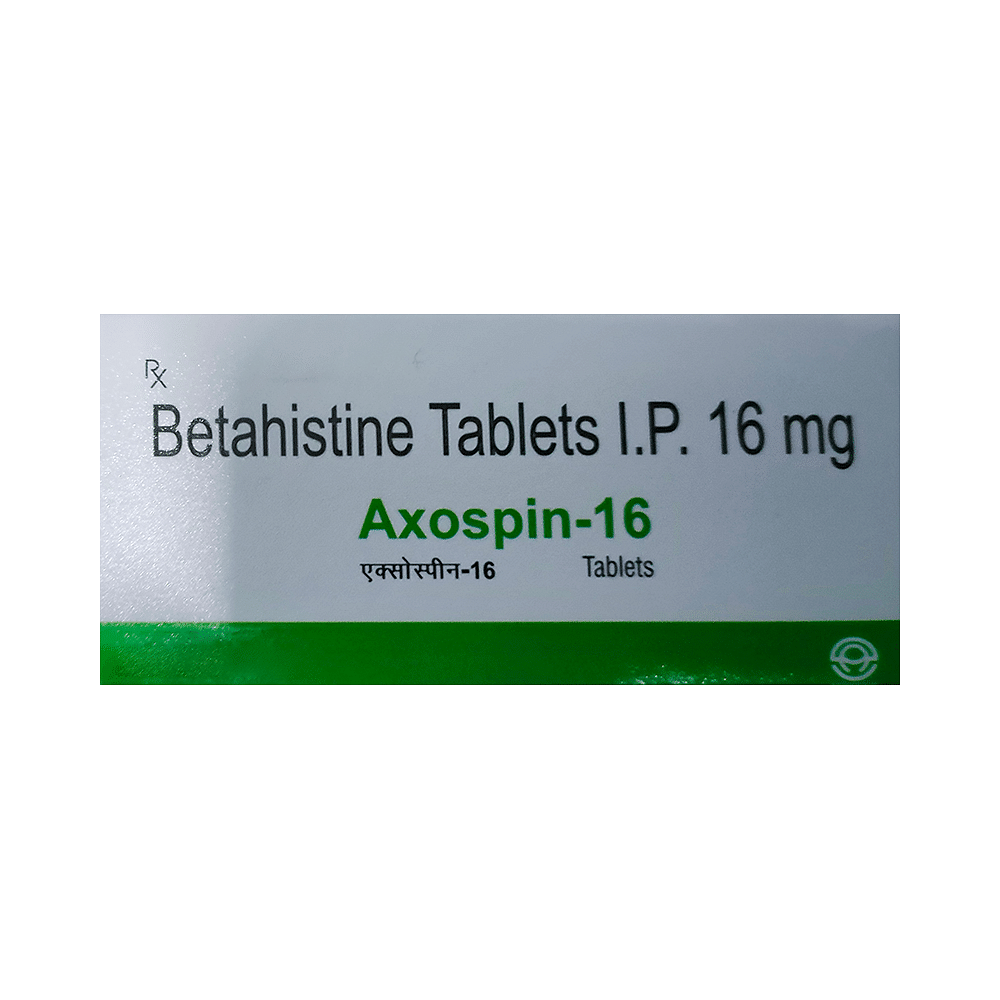
Axospin 16 Tablet
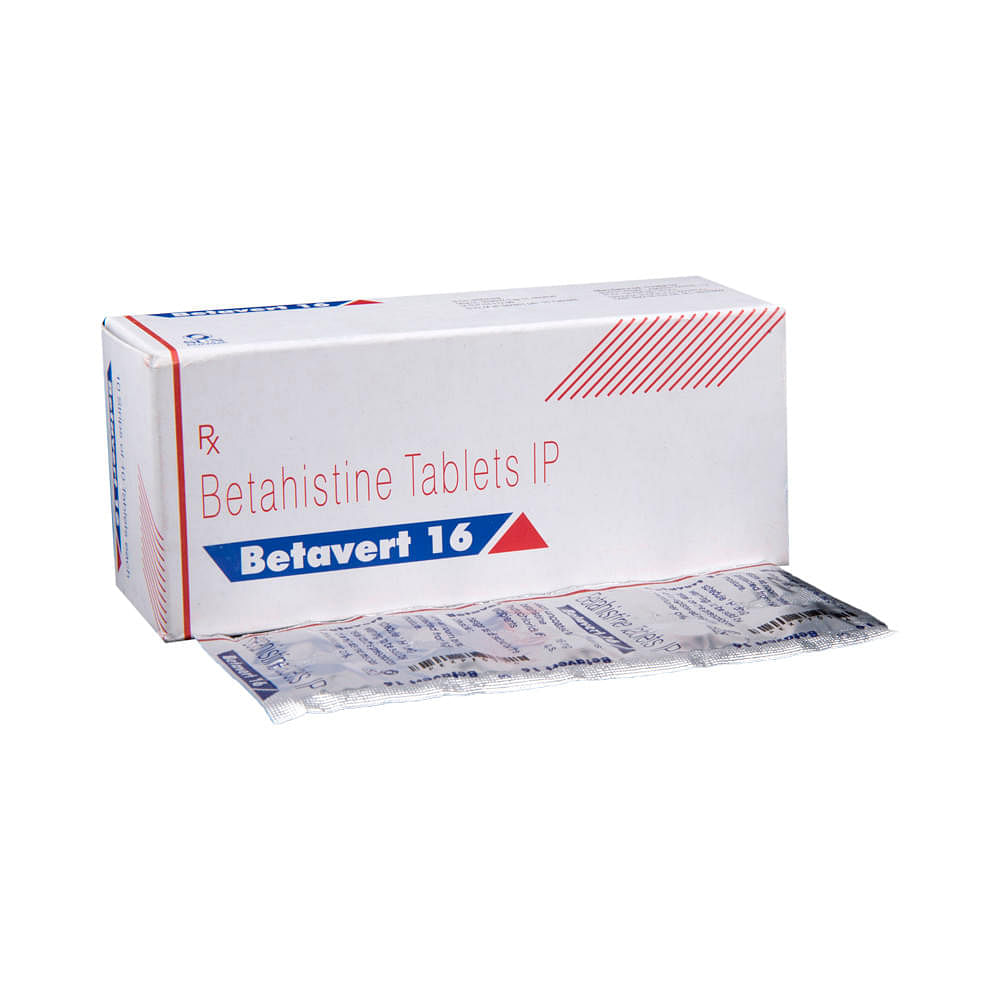
Betavert 16 Tablet
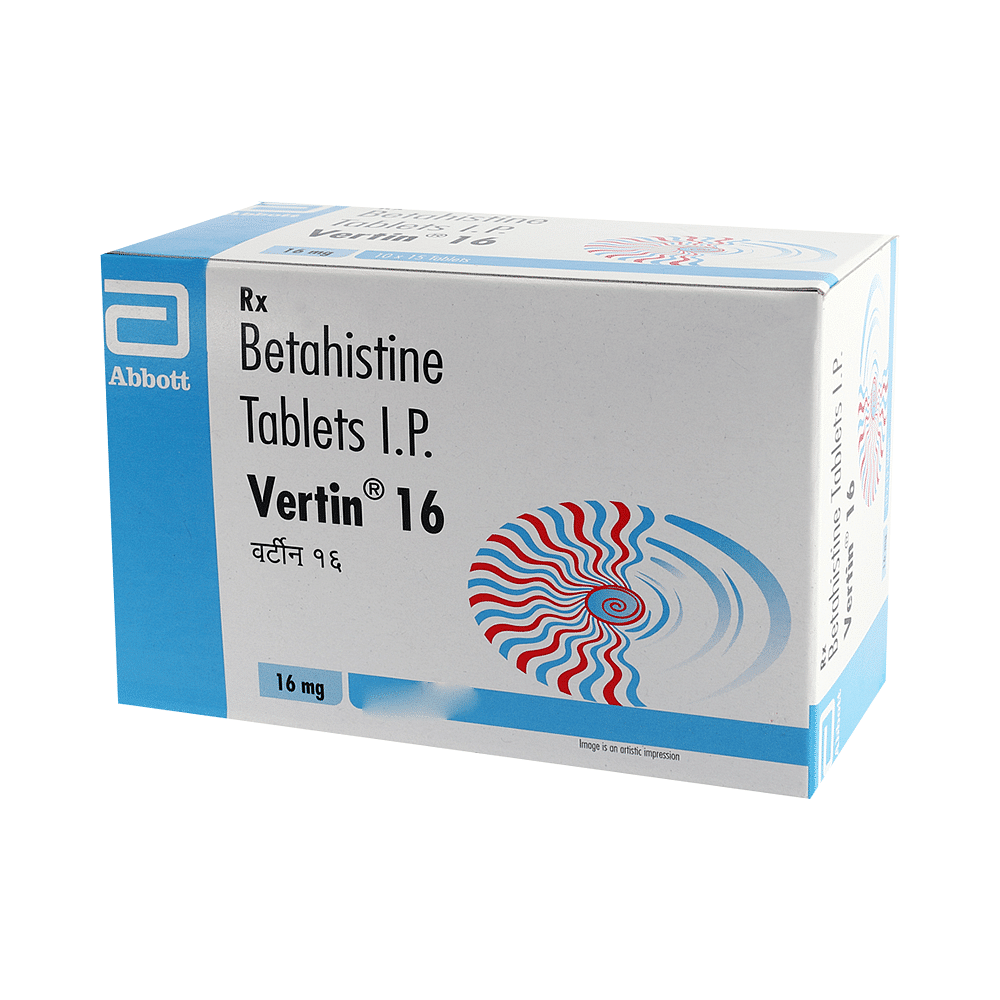
Vertin 16 Tablet
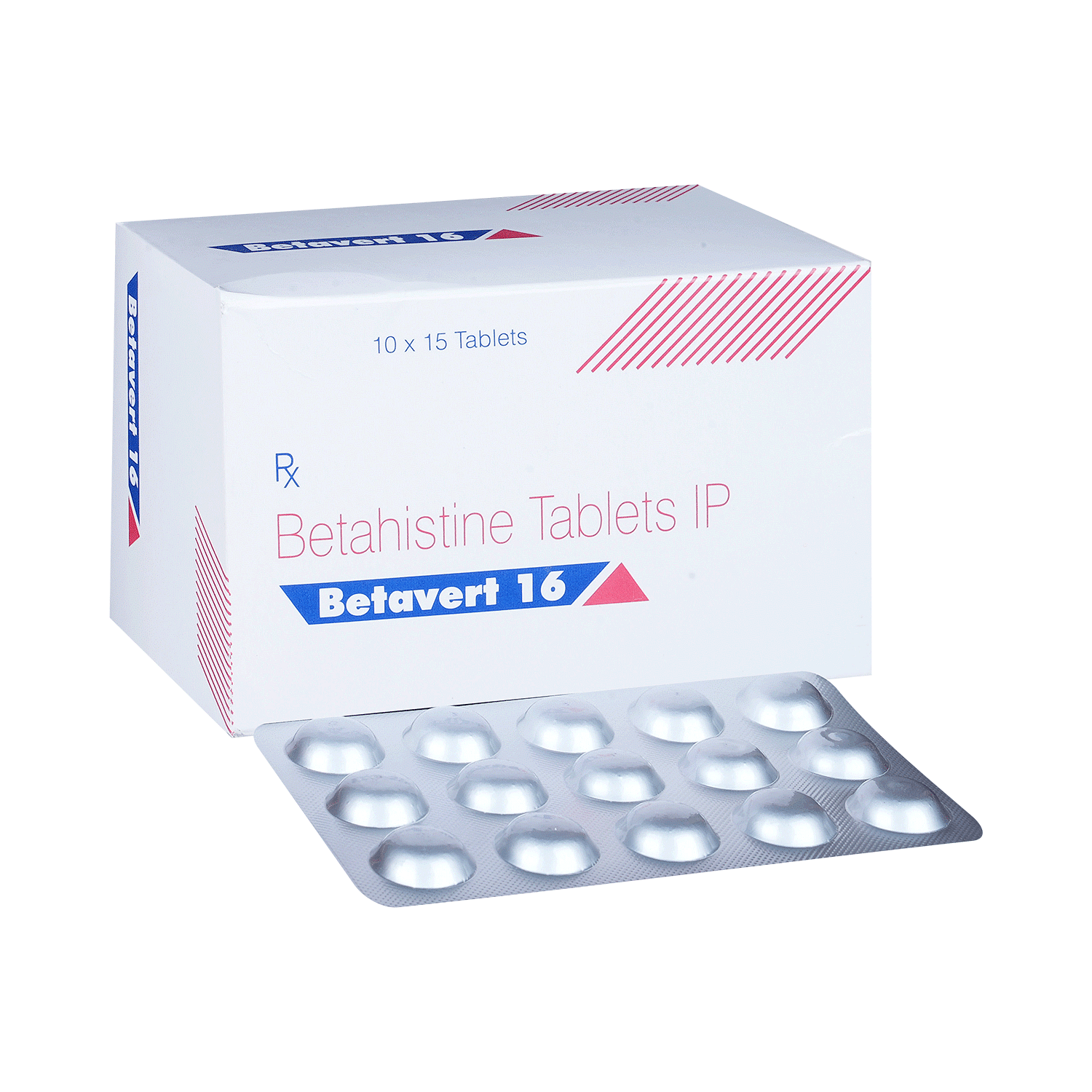
Betavert 16 Tablet

Betanac 16mg Tablet

Verticon 16mg Tablet

Vertilen 16mg Tablet

Beverta 16mg Tablet

Alver 16mg Tablet

Vatison 16mg Tablet
Frequently asked questions
What is Meniere's disease? Does it go away?
Meniere's disease is a disorder of the inner ear, affecting balance and hearing. Symptoms include vertigo (dizziness), fluctuating hearing loss, tinnitus (ringing in ears), and pressure in the ears. Symptoms can cause dizziness that may lead to nausea and vomiting. Treatment for Meniere's disease depends on the individual case. It's important to discuss treatment options with your doctor to determine the best course of action.
Is Verti-GO 16 Tablet effective?
Verti-GO 16 Tablet is effective if used according to your doctor's prescribed dosage and duration. Do not stop taking it even if you see improvement in symptoms, as stopping early may cause the vertigo to return or worsen. It is vital to follow your doctor’s instructions regarding dosage.
What are the triggers for Meniere's disease?
Triggers for Meniere's disease can include factors like stress, fatigue, emotional distress, additional illnesses, and changes in air pressure. Certain foods, such as dairy products, caffeine, alcohol, and high-sodium foods, may also play a role. Maintaining a low-salt diet (2 grams/day) can help manage vertigo symptoms associated with Meniere's disease.
What if I forget to take a dose of Verti-GO 16 Tablet?
If you miss a dose of Verti-GO 16 Tablet, take it as soon as you remember. However, if it is nearly time for your next scheduled dose, skip the missed dose and take the following dose at the set schedule. Never double the dosage to compensate for a missed one; this can increase potential side effects.
Is stress a reason for vertigo?
While stress itself doesn't directly cause vertigo, it can trigger or worsen existing vertigo symptoms. It is important to note that experiencing vertigo on its own is not always a sign of stress.
What are the causes of vertigo?
Vertigo can be caused by a sudden drop in blood pressure, dehydration, or other factors. Some people might feel lightheaded when standing up quickly after sitting or lying down. Inner ear problems like Meniere's disease or acoustic neuroma also contribute to vertigo. It is important to know that sometimes vertigo can be a symptom of other health conditions like multiple sclerosis or head trauma.
How long should I take Verti-GO 16 Tablet?
The duration of Verti-GO 16 Tablet treatment varies from patient to patient. Some people respond quickly, while others may take time. It's crucial to follow your doctor’s instructions regarding dosage and wait patiently for the expected results. If unsure about any aspect, consult your doctor.
What are the common side effects of Verti-GO 16 Tablet?
Possible side effects of Verti-GO 16 Tablet include nausea, stomach pain, abdominal distension (swollen abdomen), and bloating. You can minimize these side effects by taking the medication with food. However, when taken with food, the absorption of the medicine may be reduced.
Is Verti-GO 16 Tablet effective?
Verti-GO 16 Tablet is effective if used according to your doctor’s prescribed dosage and duration. Do not stop taking it even if you see improvement in symptoms, as stopping early may cause the vertigo to return or worsen.
What if I forget to take a dose of Verti-GO 16 Tablet?
If you miss a dose of Verti-GO 16 Tablet, take it as soon as you remember. However, if it is nearly time for your next scheduled dose, skip the missed dose and take the following dose at the set schedule. Never double the dosage to compensate for a missed one; this can increase potential side effects.
How long should I take Verti-GO 16 Tablet?
The duration of Verti-GO 16 Tablet treatment varies from patient to patient. It’s essential to follow your doctor's instructions regarding dosage and wait patiently for the expected results. If unsure about any aspect, consult your doctor.


